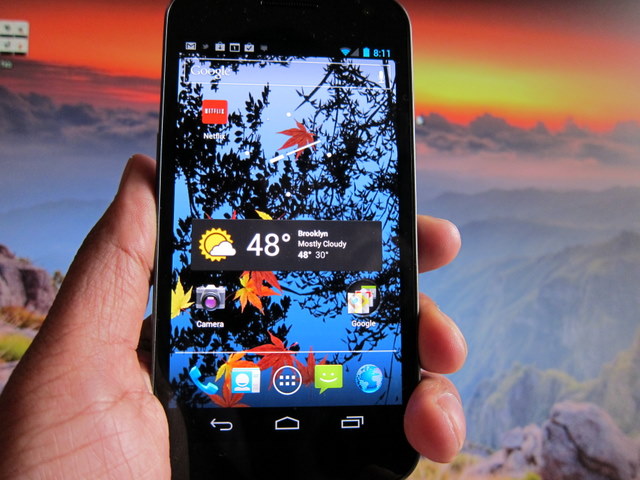
Expect plenty more Nexus Android smartphones and tablets on the horizon from multiple manufacturers, as Google will reportedly expand its partnerships to squash fears surrounding its Motorola Mobility purchase.
[aditude-amp id="flyingcarpet" targeting='{"env":"staging","page_type":"article","post_id":442261,"post_type":"story","post_chan":"none","tags":null,"ai":false,"category":"none","all_categories":"business,mobile,","session":"D"}']Historically, Google has tapped a single device partner for its Nexus line (HTC for the Nexus One, Samsung for the Nexus S and Galaxy Nexus). But sources tell Bloomberg that the search giant is looking to add many more Nexus partners, and will also sell the devices directly to consumers. The Nexus devices are expected to run Android 5.0 “Jelly Bean.”
Google’s Nexus partners get access to early releases of Android before other manufacturers, which gives them a leg-up when designing their new products. And since they work directly with Google, Nexus devices aren’t riddled with carrier junkware apps, or clunky interface tweaks like HTC’s Sense.
AI Weekly
The must-read newsletter for AI and Big Data industry written by Khari Johnson, Kyle Wiggers, and Seth Colaner.
Included with VentureBeat Insider and VentureBeat VIP memberships.
Google may work with up to five Nexus partners, and the devices are also expected to be sold unlocked (a.k.a. not tied to any carrier).
Having more Nexus devices would give Google more control over the Android ecosystem, Bloomberg’s sources said. It would also allay fears that Google would play favorites with Motorola Mobility, which it’s currently in the process of purchasing for $12.5 billion.
While the move raises more questions about what Google will actually do with Motorola, it makes sense for the search giant to want more control over Android’s direction. Apple has complete control over the iPhone — carriers be damned — and Microsoft has also been strict about how both carriers and device makers treat Windows Phone devices.
If Google really wants to compete with the quality of its operating system — not just the number of units shipped — it needs to work with partners to make sure flagship Android devices aren’t hobbled by carriers, or anyone else for that matter.
VentureBeat's mission is to be a digital town square for technical decision-makers to gain knowledge about transformative enterprise technology and transact. Learn More
